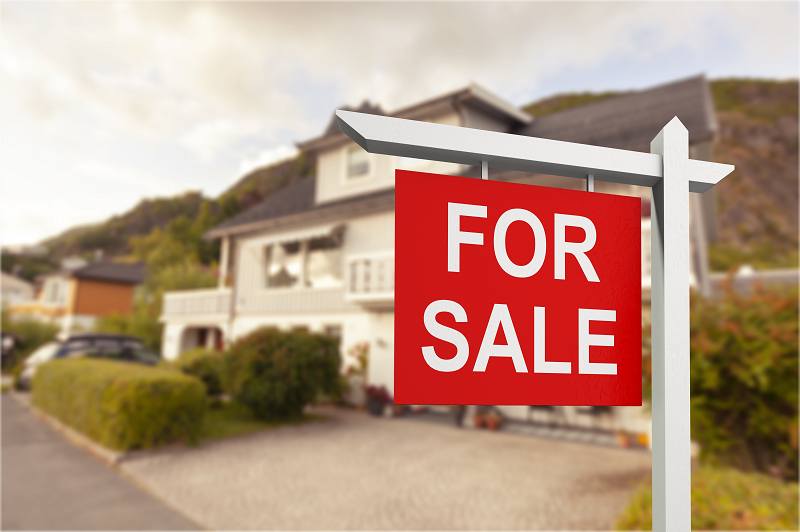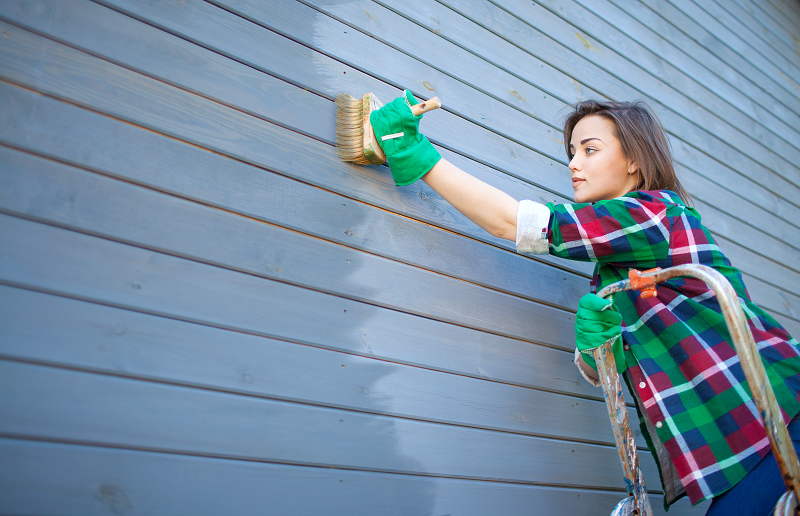
You’ve heard it before: you must spend money to make money.
Successfully selling a house requires making several investments—all of which can add up to a pretty penny.
From recording fees to capital gains taxes, you may become overwhelmed with the financial responsibilities of your house sale. As with anything else, preparation is crucial.
Additionally, there are several ways to save money. For example, if you want to sell a house fast in Pennsylvania, you can easily do so without covering additional costs.
Use this guide to account for the cost of selling a house—and find strategies to cut down on those costs.
What Fees Do Sellers Pay When Selling a House?
There are several fees associated with selling a house—though not all sellers will face every fee. For example, you can work with cash home buyers in Chester and avoid commission fees.
There are several important factors to consider when examining cost. These include:
- Home sale price
- A mortgage rate, loan amount, and payoff price
- Tax rates
- Repairs and renovations needed
- Local factors
- Sale price
- Homeowners Association fees
- Average local closing costs
- Professional services (attorney, realtor, etc.)
Typically, the seller’s closing costs amount to 9–10% of the home’s value in fees, charges, and taxes. Some costs are upfront, like staging and repair costs, while others occur at closing.
Use the following breakdown of the seller’s total costs to create a budget.
House Selling Fees
Below you will find the costs to sell a house. Remember that amounts and requirements can vary depending on the factors listed above.
Real Estate Agent Fees (5-6%)
Most sellers begin by finding a real estate agent. Realtors receive a commission for their work, and you can expect to pay, on average, between 5-6% of your home’s value.
Real estate agent commissions are occasionally divided into different categories and parceled to other individuals.
The seller’s broker and seller’s agent receive a portion of the cost, while the buyer’s broker and buyer’s agent also receive a commission.
We will discuss these fees at length below.
Pre-sale Costs (Around $10,000 or 3% Of the Average Home Price)
Pre-sale costs are typically investments that you make before home selling. Many are not requirements but can add to your home’s value and speed up your sale.
Appraisals and Inspections ($200–$400 each)
Appraisals and home inspections fall under the quality control category and will enable you to determine your home’s value and identify any necessary repairs and renovations.
Appraisers will briefly assess your home and determine its value, while inspectors will use special tools and devices to evaluate the quality of various features in your home.
While inspections often fall under the buyer’s budget, many sellers opt to fund inspections to distinguish necessary repairs from money pits.
Home Repairs and Renovations (1%–4% of home value)

Although some repairs and home improvements can boost the value of your home, you shouldn’t go overboard and fix everything in your house.
The most common value-boosting repairs include:
- Replacing flooring ($1,500 to $3,000)
- Re-painting ($1,500 to $2,250)
- Replacing or fixing appliances and utilities (varies)
- Kitchen or bathroom remodel ($20,000+)
Landscaping and Outdoor Improvements ($3,500 on average)
Consider adding curb appeal to entice potential buyers.
Some sellers choose to add outdoor recreation features or construct patios and porches. Others elect to repaint the home’s exterior or re-pave driveways and walkways.
Even mowing the lawn and clearing dead trees and debris can boost your curb appeal.
Cleaning ($300–$1200)
Cleaning costs will vary depending on how much cleaning you need to do.
For example, if you need to rent a dumpster or hire someone to declutter your house, you will face higher costs.
Most cleaning services cost between $200–$400, depending on the size of the house. You may need to clean more than once if your home remains on the market for a long time.
Staging ($1,600–$2,000)
Staging your home entails rearranging furniture and de-cluttering to maximize appeal.
According to the National Association of Realtors, home staging costs between $1,600 and $2,000 and can significantly boost your chances of selling your home fast.
Property Costs (5%–7% of home value)
There are many costs associated with closing. Thankfully, some are borne by buyers, others vary by state, and most are relatively low.
Liens (Vary)
Liens are claims against assets associated with your property. You may need to clear them before selling your house, though this is not always necessary.
Home Warranty ($350–$600)
Home warranty costs cover the price of repairs or renovations. Sellers can offer to pay the warranty to encourage buyers to close.
Mortgage Payoff (Varies)
The home sale proceeds will contribute directly to your mortgage payoff, but you might face additional fees from accrued interest and prepayment penalties.
If you are a first-time buyer, you may be able to claim discounts on your mortgage, provided you live in the home.
Contact your lender for details.
Title Insurance ($1,000–$2,000)
Sellers typically pay title insurance policies.
A title search, which verifies title ownership before the sale, protects lenders and buyers from ownership claims and legal disputes. You will likely need to pay title fees for this transaction.
Homeowner’s Association Fees (Vary)
Sellers typically pay pro-rated HOA dues when closing, while buyers agree to cover the HOA fee. Since the cost depends on your move-out date, it can vary.
Closing Costs (1–3%)
Closing fees comprise roughly 1-3% of your home price. These may include application, origination, underwriting, and credit report fees.
Some sellers pay brokerage, courier, or real estate attorney fees, depending on the services needed.
Seller’s Concessions (Vary)
Sellers occasionally offer to cover some of the buyer’s closing costs. Seller concessions vary according to the contract between buyer and seller.
Taxes and Fees (1%–3% Of Home Value)
There are several taxes and fees associated with a home sale.
Property Tax (1% Average)
You must pay property taxes until the day of closing. Most sellers pay pro-rated property taxes or pay out of an escrow associated with their mortgages.
If you pay using escrow, you may also face escrow fees.
Recording Fees ($125 Average Cost)
Most sellers pay recording fees to register a real estate sale with the government.
Escrow Fees ($500–$2,000 or 1% Of Home Price)
Escrow fees typically cover the signing and recording of documents associated with the sale and the holding of purchase funds.
Buyers and sellers typically split escrow fees. You may also face office expenses, notary fees, and documentation fees.
Capital Gains Tax
Selling your home may impact your tax bracket. If you sell it for more than you paid, you will need to report a capital gain.
Many sellers are eligible for special tax breaks—contact a tax expert for more information.
Transfer Tax
Some local governments charge transfer of ownership taxes. This will represent a small percentage of the home price, and some states do not have transfer taxes.
Moving Costs and Transition Costs (1–2% Of Home Price)
Moving can be expensive. You may be renting a new house or putting a down payment on a new home. Either way, this will cost you.
Overall, moving costs and the costs of transition (overlapping mortgages and insurance premiums) represent roughly 1-2% of your home’s price.
Realtor Fees (5–6%)
Realtors earn commission throughout the real estate transaction. Their commission is paid when the sale closes.
Real estate agent commissions typically range from 5% to 6% of the sale price. This represents the main cost of selling a house in Philadelphia.
Home sellers are generally responsible for paying both the listing agent and buyer agent’s commissions.
Additionally, each agent typically has a 60/40 commission split agreement with their brokers, who receive 40% of the commission share.
The commission covers everything your agent has done throughout the sale, from pricing and marketing your house to negotiating terms and finalizing details and documents.
How To Lower Realtor Expenses
There are several ways you can lower real estate fees. First, shop around for different agents and evaluate their commission fees. You can also negotiate with your agent to obtain a payment that suits your budget.
You can also work with a reduced-fee real estate agent or a flat fee agent. Some homeowners choose to sell their homes on their own. This is called “for sale by owner” (FSBO).
While FSBO may save you up to 20% on commissions, some experts argue that profit is negligible in the long term.
Lastly, you can sell your house to a flat-rate home-buying company and avoid commissions and fees altogether.
Are There Fees You Can Pass On to the Buyer?
Most buyer and seller costs are negotiable. In a seller’s market, buyers are typically more willing to meet a higher selling price or assume additional fees.
You can negotiate with your real estate agent on commission costs and additional fees and payments with your buyer.
The following fees are either optional or transferable.
Repairs and Renovations
If you can sell your home without making major repairs, your buyer will eventually face the cost of fixing any damage or malfunction.
The drawback is that specific fixes can raise your market price by more than the repair cost.
Closing Costs
While the seller typically pays closing costs (in which realtor commissions are included), they can raise the price of the house to accommodate these costs, effectively passing them onto the buyer.
Buyer’s Home Warranty
While paying for the warranty until the sale is common practice, you can neglect to pay warranty coverage, though your buyer may be less flexible on other negotiable fees.
Eliminate Commissions Altogether
To avoid all additional costs associated with buying a house, yes, you can sell a house without a realtor through a full-service house-buying company.
This eliminates the need for staging, listings, and all other realtor-delegated tasks. FSBO can save you significant amounts of money by eliminating additional fees.
Final Notes
Although selling a house can be expensive, there are many strategies you can use to reap savings.
With the proper preparation and guidance, you can budget wisely and plan for a seamless, price-efficient selling experience.
We buy houses Pennsylvania owners want to part with. Contact us today for more information on selling your house without additional fees and costs.

 Call Us!
Call Us!